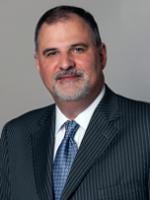On March 8, 2017, the staff of the Securities and Exchange Commission (“SEC”) granted no-action relief that potentially will permit global investment management firms to offer U.S. registered open-end management investment companies more broadly in global distribution channels through cross border master-feeder arrangements. In particular, the SEC staff granted relief to allow a non-U.S. investment company (a “Foreign Feeder Fund”) to invest as a feeder fund in a U.S. registered open-end management investment company (a “U.S. Master Fund”) without complying with all of the conditions of Section 12(d)(1)(E) of the Investment Company Act of 1940 (the “1940 Act”). [1] Under the terms of the relief, a Foreign Feeder Fund can avoid certain provisions in Section 12(d)(1)(E) that otherwise apply to an offshore feeder fund and instead comply with different conditions outlined in the letter. The relief may be useful to global investment management firms that control both U.S. advisers to registered investment companies and non-U.S. investment advisers because it reduces certain barriers to the offer and sale of U.S. registered open-end funds in non-U.S. jurisdictions through master-feeder arrangements, thereby potentially eliminating the need for investment managers to operate redundant funds in multiple countries and regions in certain cases. However, the practical impact of this relief may be limited due to significant impediments to global distribution of U.S. registered investment companies that remain, including potentially material U.S. tax withholding issues [2] and issues complying with non-U.S. private offering regimes. [3]
Background
Section 12(d)(1)(A) of the 1940 Act, in conjunction with other provisions of the 1940 Act, prohibit registered and unregistered investment companies, including a Foreign Feeder Fund (as well as private funds), from acquiring any security issued by a registered investment company, if, immediately after such acquisition, the acquiring company exceeds certain ownership thresholds. [4] A corollary provision in Section 12(d)(1)(B) of the 1940 Act also prevents an open-end fund and its principal underwriter or brokers from selling shares to the acquiring fund in excess of the thresholds. [5]
Section 12(d)(1)(E) of the 1940 Act provides an exemption from these limitations, which in practice allows master-feeder arrangements to operate if they meet the conditions set forth in that section. These conditions, applied in the context of a non-U.S. feeder/U.S. Master Fund arrangement are as follows:
- the principal underwriter for the Foreign Feeder Fund must be a broker or dealer registered under the Securities Exchange Act of 1934 (the “Exchange Act”), or a person controlled by such broker or dealer;
- the U.S. Master Fund’s securities are the only investment security held by the Foreign Feeder Fund; and
- the Foreign Feeder Fund purchases or otherwise acquires securities issued by the U.S. Master Fund pursuant to an arrangement with the U.S. Master Fund or its principal underwriter whereby the Foreign Feeder Fund is obligated:
- either to seek instructions from its security holders with regard to the voting of all proxies with respect to the U.S. Master Fund’s securities and to vote such proxies only in accordance with such instructions, or to vote the shares held by it in the same proportion as the vote of all other holders of the U.S. Master Fund’s securities; and
- to refrain from substituting the U.S. Master Fund’s securities unless the SEC shall have approved such substitution in the manner provided in Section 26 of the 1940 Act.
The no-action relief, discussed in greater detail below, modifies certain of the conditions imposed by Section 12(d)(1)(E) of the 1940 Act. The conditions may be grouped generally as (i) replacing the requirement to have a broker-dealer act as principal underwriter with a requirement that the Foreign Feeder Fund be advised by a control affiliate of the U.S. Master Fund’s adviser, (ii) requiring the Foreign Feeder Fund be organized and regulated by only certain jurisdictions that have a cooperation arrangement with the SEC, (iii) preventing the Foreign Feeder Fund from selling any interests to U.S. persons, (iv) allowing the Foreign Feeder Fund to make certain currency investments in addition to holding U.S. Master Fund securities, as well as allowing certain hedging activity in the case of an index master fund, and (v) setting forth additional options regarding voting of U.S. Master Fund shares.
Modification of 12(d)(1)(E) for Certain Master-Feeder Arrangements
The no-action relief is available to master-feeder arrangements that satisfy the following conditions:
- The Foreign Feeder Fund must have an investment adviser (the “Feeder Fund Adviser”) that controls, is controlled by, or is under common control with the investment adviser to the U.S. Master Fund (the “Master Fund Adviser”) and the principal underwriter of the U.S. Master Fund (“the Master Fund Principal Underwriter). [6]
- The Foreign Feeder Fund must be organized in, and regulated under the laws of, a jurisdiction whose securities regulators have entered into a cooperation arrangement with the SEC. [7]
- No Foreign Feeder Fund will offer or sell its securities in the United States, either publicly or privately, or sell its securities to any “U.S. person,” as defined in Rule 902(k) of Regulation S under the Securities Act of 1933, as amended (“Regulation S”).
- Each Foreign Feeder Fund’s transactions with its shareholders will be consistent with the definition of “offshore transactions” in Rule 902(h) of Regulation S.
- No Foreign Feeder Fund, Feeder Fund Adviser, principal underwriter that either controls or is under common control with a broker or dealer registered under the Exchange Act (“Foreign Principal Underwriter”), any of their respective affiliates, or any person acting on behalf of any of the foregoing, will engage in any “directed selling efforts,” as defined in Rule 902(c) of Regulation S, with respect to securities of the Foreign Feeder Fund in the United States.
- In addition to the U.S. Master Fund’s securities, the Foreign Feeder Fund may hold foreign currency and certain foreign currency-related instruments, including foreign currency futures contracts, options on foreign currency futures contracts, forward foreign currency contracts, options on foreign currency, and foreign currency swap agreements to mitigate the effects of currency fluctuations, but only in the following two situations:
- A Foreign Feeder Fund may hedge the performance of the U.S. Master Fund, as measured in the U.S. dollar, against the currency of the foreign jurisdiction in which the Foreign Feeder Fund’s securities are primarily offered and sold (“Designated Currency”).
- A Foreign Feeder Fund that invests in a U.S. Master Fund that seeks to approximate the return of an index, may hedge the U.S. dollar and/or foreign currency exposure associated with the U.S. Master Fund’s portfolio to the Foreign Feeder Fund’s Designated Currency (“Master-level Hedging”).
- Such Foreign Feeder Fund may engage in Master-level Hedging only so long as: (i) the provider of the index is not an affiliated person or an affiliated person of an affiliated person, of the U.S. Master Fund, the Master Fund Adviser, any subadviser or promoter of the U.S. Master Fund, or the Master Fund Principal Underwriter; (ii) the currency exposure of the U.S. Master Fund does not materially deviate from the currency exposure of the index, whether through sampling or otherwise; and (iii) the investment objectives of the Foreign Feeder Fund and the U.S. Master Fund are substantially the same, except to the extent necessary to permit the currency hedging.
- The Foreign Feeder Fund will purchase or otherwise acquire securities issued by the U.S. Master Fund pursuant to an arrangement with the U.S. Master Fund or the Master Fund Principal Underwriter whereby the Foreign Feeder Fund is obligated:
- Either to seek instructions from its security holders with regard to the voting of all proxies with respect to the U.S. Master Fund’s securities and to vote such proxies only in accordance with such instructions, or to vote the shares held by it in the same proportion as the vote of all other holders of the U.S. Master Fund’s securities. However, if the laws and/or market practices of a foreign jurisdiction in which a Foreign Feeder Fund operates do not permit, or may be interpreted as prohibiting, voting in that manner, then the Foreign Feeder Fund will either abstain from voting or withhold voting the shares of the U.S. Master Fund; and
- To refrain from substituting the U.S. Master Fund’s securities unless the SEC has approved such substitution.
Potential Impact of the Relief
Investment managers seeking to operate a global fund business currently must establish and operate redundant funds and fund complexes around the world in many cases due to various legal and practical restrictions. This increases inefficiencies and costs for investment managers and investors alike.
The SEC staff relief is an incremental step in reducing barriers to global distribution of U.S. registered funds and may marginally increase the use of cross border “master-feeder” arrangements as contemplated in the letter. However, the practical impact of this relief may be limited due to a variety of significant impediments to global distribution of U.S. registered investment companies that remain, including material U.S. tax withholding issues and issues complying with non-U.S. private offering regimes, among others.
With respect to U.S. tax withholding issues, a Foreign Feeder Fund will be subject to withholding tax at the rate of 30 percent (or possibly at a lower rate if the Foreign Feeder Fund is eligible to benefit from a tax treaty) on certain dividends paid to it by its U.S. Master Fund. This withholding tax will not apply to the U.S. Master Fund’s distributions of long-term capital gains or to properly designated interest-related dividends and short-term capital gain dividends. Interest-related dividends are dividends based on the income of a regulated investment company (“RIC”) that is qualified interest income, which includes (i) original issue discount on an obligation payable within 183 days of issuance, (ii) interest on an obligation in registered form (other than interest on an obligation issued by an obligor in which the RIC is a 10 percent shareholder or interest that does not qualify as portfolio interest), (iii) interest on deposits, and (iv) interest-related dividends received from other RICs. Short-term capital gain dividends are dividends based on short-term capital gains realized by a RIC. These exemptions are helpful to reduce the withholding tax burden for a U.S. Master Fund that is an income fund, but dividends paid by equity funds will be subject to the withholding tax. It is also possible that a Foreign Feeder Fund will not be eligible for a reduced withholding tax rate, even if it is formed in a treaty jurisdiction, due to the limitation on benefits provisions found in many U.S. tax treaties.
U.S. Master Funds may also face challenges complying with the securities laws and regulations in many non-U.S. jurisdictions since it will be offering shares to and through the Foreign Feeder Fund. These laws and regulations may impose local registration, notification, and/or reporting requirements, disclosure obligations, and restrictions on marketing and selling activities. Managers of U.S. Master Funds will need to carefully evaluate the regulatory environment of the Foreign Feeder Fund’s domicile to ensure it is complying with the local regulator’s requirements.
[1] The SEC staff no-action letter can be found on the SEC’s website here: https://www.sec.gov/divisions/investment/noaction/2017/dechert-030817-12d1.htm#_ftn12. The terms of the letter do not apply to a master fund that is a closed-end management investment company.
[2] See K&L Gates LLP Client Alert: Permanent U.S. Withholding Tax Relief for Non-U.S. Investors in U.S. Mutual Funds (http://www.klgates.com/permanent-us-withholding-tax-rules-for-non-us-investors-in-rics--a-new-distribution-opportunity-01-12-2016/).
[3] For example, the EU’s Alternative Investment Fund Managers Directive, or AIFMD.
[4] Section 12(d)(1)(A) of the 1940 Act would prohibit a Foreign Feeder Fund from: (i) acquiring more than 3 percent of the total outstanding voting stock of a U.S. Master Fund; (ii) investing more than 5 percent of the value of its total assets in the U.S. Master Fund; or (iii) investing more than 10 percent of the value of its total assets in investment companies registered under the 1940 Act. The SEC staff, through other no-action positons, has modified the 5 percent and 10 percent thresholds, but not the 3 percent threshold, for certain offshore funds that are not feeder funds.
[5] Section 12(d)(1)(B) of the 1940 Act prohibits any open-end fund, including a U.S. Master Fund, its principal underwriter, or any broker or dealer registered under the Exchange Act, to sell any security issued by such registered open-end investment company to any other registered or unregistered investment company, including a Foreign Feeder Fund, in excess of certain thresholds.
[6] To the extent the Feeder Fund Adviser is not registered under the Investment Advisers Act of 1940, such Feeder Fund Adviser must make its books and records with respect to the activities of the Foreign Feeder Fund available to the SEC and its staff, designate the Master Fund Adviser as its agent for service of process in the U.S. with respect to the Foreign Feeder Fund, and consent to the jurisdiction of the U.S. courts and the SEC with respect to its activities in connection with the Foreign Feeder Fund.
[7] More information regarding cooperation agreements can be found on the SEC’s website here: https://www.sec.gov/about/offices/oia/oia_cooparrangements.shtml.








 />i
/>i

